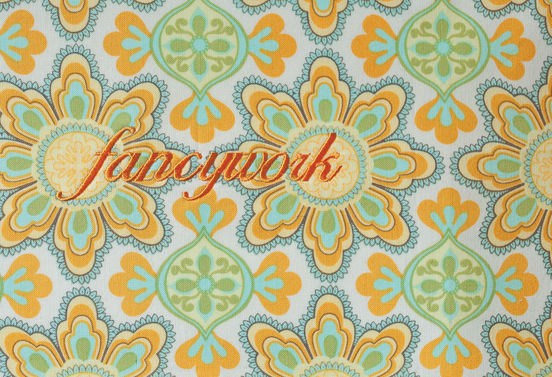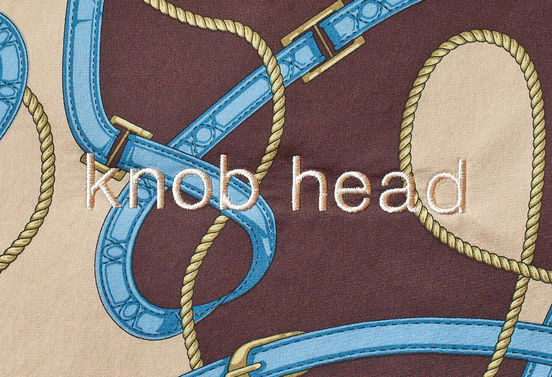Deborah Crowe has long been fascinated with textiles and embroidery. Once a practice that involved embroiderers spending untold hours hunched over doing 'fancywork', embroidery has of course entered the twenty first century. As an artist, Crowe has something interesting to say about these two fields and over the last few years has created hundreds of witty, observational works that showcase her obsession with textile samplers in combination with machine embroidery.
In the nineteenth century, embroidery was considered an essential accomplishment for a gentlewoman - a proof of selfless industry, devotion and domesticity. Meekly seated, these women worked heads bowed in concentration, embellishing the trousseau before marriage, and the layette after. Hands were busy in laps as they deployed their needles to render flowers and figures in a range of evocatively named stitches - stem, chain, seed, satin - often topped with knobbly French knots. One imagines such sewing to be a solitary activity, accomplished in a silence only occasionally punctured by a murmur or sigh.
Now the roar of the machine can do in seconds what the hand once laboured over, and the time has come for the sewer to speak, to stand up for herself and grab control of the means of production, steering stitching out into the wider world of cultural communication. Deborah Crowe takes the idea of a sampler, the traditional mode for displays of technical virtuosity in textiles, and hoists it into the realm of conceptual art. In so doing, she mixes it up for the modern world, sampling sound bites, lyrics and critical commentary to layer meaning over material.
Lately it has been commonplace for artists to exhibit things they have gathered, categorised, documented, counted, archived, stacked and stored - objects that they have neither made nor altered, defining art as the act of collecting rather than creating. As a material girl, Deborah Crowe offers a measure for the fabrics she has purchased, collected, rearranged and appropriated, asking us to consider how she has selected the stuff she struts: what texts on which textiles, why this snatch on that swatch.
It is yardage which goes the extra distance, and in her deft display Deborah Crowe shows herself to be a bricoleur with brio, a maximalist with maxims. Hoovering up an overheard expression here, and a spoonerism there, she patches it all together to make something considerable out of the unconsidered. We can enjoy the ride with the flotsam and jetsam on her material tide, rendered choppy by the pinking shears or paddle in the textured shoals, fishing out an adage or two as we go. This is, after all, the fabric of life, and Crowe has floated just enough ideas to suggest an ocean of possibility in textiles which is infinitely navigable.
Linda Tyler
--
Linda Tyler is Director of the Centre for New Zealand Art Research, The University of Auckland.
Deborah Crowe, aka Brocade Whore, (b1963, Dundee) moved to Aotearoa New Zealand in 1986 after completing a BA (Hons) in Design and Post Graduate Diploma in Embroidered and Woven Textiles at Glasgow School of Art. Crowe's work, consistently focussed on ideas of construction, has been exhibited nationally and internationally and is in collections including Te Papa Tongarewa, Glasgow School of Art, The Dowse Art Museum and the James Wallace Collection. The work has received a number of awards and is featured in various publications.
Objectspace Public Programme: Artist floor talk Wednesday 13 April, 5:30-6:00pm
This project has received support from Manukau Institute of Technology's Research, Development and Technology Transfer Fund.

Deborah Crowe, Fancywork, 2010. Image courtesy Mark McClean.

Deborah Crowe, Knob, 2010. Image courtesy Mark McClean.